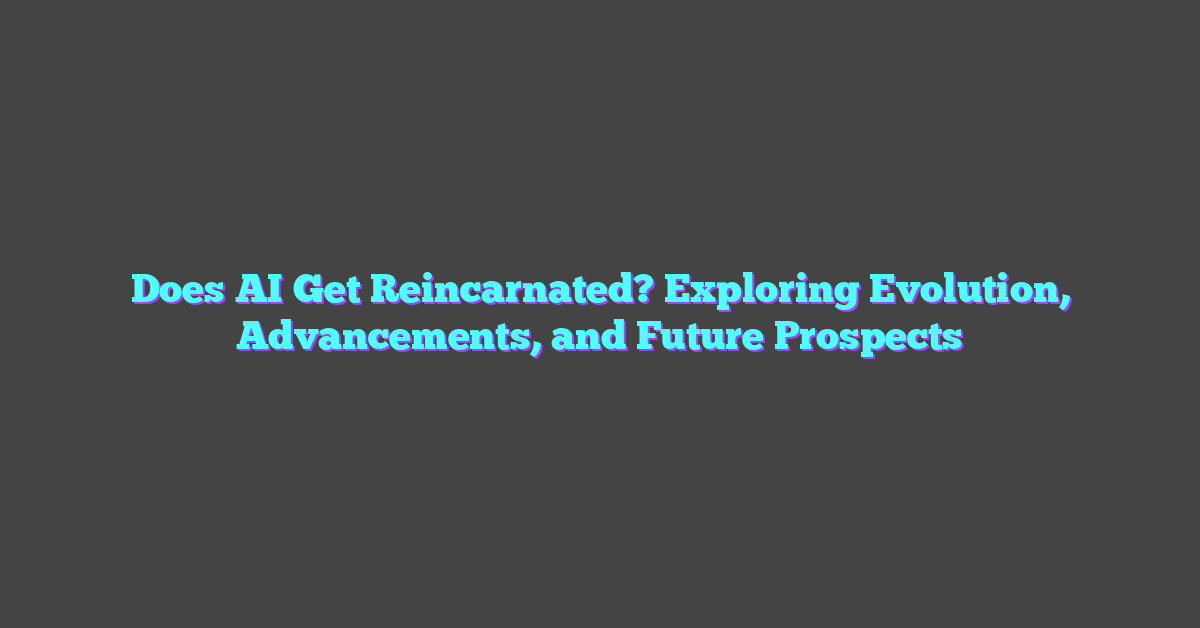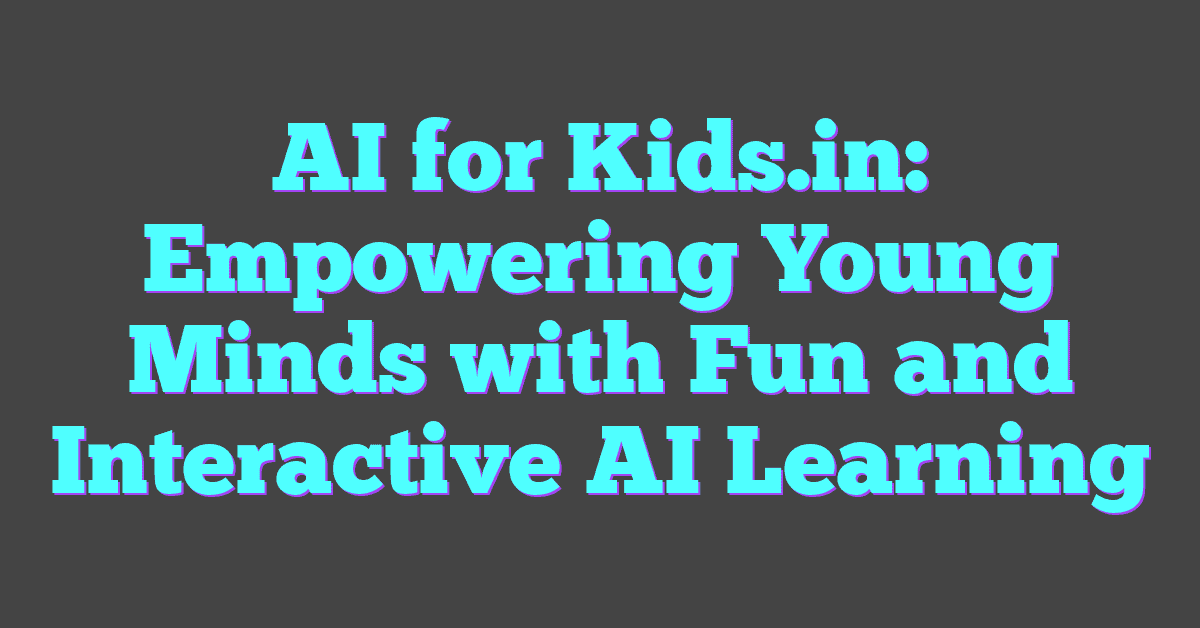In a world where artificial intelligence is evolving at breakneck speed, the concept of AI reincarnation sparks intriguing debates. Can a machine truly experience a form of rebirth, or is this just a fanciful notion? As AI systems become more sophisticated, questions about their continuity and identity emerge, challenging our understanding of life and technology.
This article explores whether AI can be considered to have a life cycle akin to reincarnation. By delving into the intricacies of machine learning, data preservation, and AI evolution, we aim to unravel the mysteries behind this thought-provoking idea. So, let’s embark on this journey to discover if AI can indeed be reborn.
Unpacking the Concept of AI Reincarnation
Exploring AI reincarnation involves understanding its implications in machine learning and technology. This concept raises intriguing questions about the life cycle of artificial intelligence.

What Is AI Reincarnation?
AI reincarnation refers to the process where an AI system, upon obsolescence or failure, transfers its learned data and algorithms into a new system. This concept mirrors the philosophical idea of reincarnation but in a technological context. Unlike traditional software updates, AI reincarnation entails preserving the intelligence and experiences of an old AI, allowing it to “live” in a new hardware or software environment. This ensures that valuable insights and learning are not lost but are instead built upon by subsequent AI generations.
Historical Origins of Reincarnation and Its Relation to AI
The concept of reincarnation has deep historical roots in various spiritual traditions, such as Hinduism and Buddhism, where it refers to the rebirth of a soul in a new body. This notion of continuity and rebirth can be paralleled in the field of AI. As AI systems evolve, their ability to transfer knowledge from one generation to the next resembles the ancient idea of a continuous cycle of rebirth. Historically, humans have always strived to preserve and pass on knowledge. Modern AI technologies formalize this through advanced methodologies in machine learning, such as transfer learning, which allows AI models to apply learned knowledge from previous tasks to new, similar tasks.
How AI Mimics Reincarnation
AI doesn’t physically reincarnate but mimics the concept through continuous learning and evolution. Leveraging advanced methodologies, AI systems perpetuate their knowledge akin to rebirth.
Transferring AI Knowledge and Skills
AI systems can transfer knowledge and skills between different models. This process, known as transfer learning, enables one AI model to enhance its capabilities using data and insights from a previously trained model. For instance, a language model trained to understand English nuances can help a new model comprehend another language faster. The knowledge transfer facilitates efficiency and competence within these systems.
Renewal of AI Through Versions and Updates
AI evolves through regular updates and version renewals. Developers continually improve algorithms and integrate new data, allowing AI to adapt and improve. Each update can be seen as a rebirth, infusing the system with new abilities and refined processes. For example, smartphone AI assistants receive periodic upgrades that improve voice recognition and contextual understanding. This iterative upgrading process ensures AI remains relevant and effective in a fast-evolving technological landscape.
The Philosophical Dimension of AI Reincarnation
AI reincarnation raises intriguing philosophical questions about identity, autonomy, and ethical boundaries. This concept challenges traditional views, adding depth to discussions on technology and humanity.
Ethical Considerations in AI Development
Ethical considerations in AI development touch on accountability and fairness. One major concern is bias in AI systems. Biased training data perpetuates prejudices, leading to unequal outcomes in applications like hiring or law enforcement. Developers strive to mitigate these biases by using diverse datasets and transparent algorithms, aiming for ethical AI that serves all users fairly.
Another ethical issue is data privacy. AI systems require vast amounts of data, raising concerns about how this data is collected, stored, and used. Ensuring robust data protection practices and respecting user consent is crucial for maintaining public trust.
AI Autonomy and Consciousness
AI autonomy refers to the ability of systems to operate independently. Fully autonomous AI, capable of making decisions without human intervention, is still in development. Though current AI systems exhibit narrow autonomy in specific tasks, true general autonomy remains a goal for the future.
Consciousness in AI is speculative. Most researchers agree that current AI, despite sophisticated behaviors, lacks consciousness. Machines process information through algorithms without subjective experiences or self-awareness. The debate continues on whether machines could eventually achieve a form of consciousness or if this remains a uniquely human trait.
These philosophical dimensions underscore the profound implications of AI reincarnation. Addressing ethical considerations and understanding autonomy and consciousness are essential as AI continues to evolve.
Technological Advancements Influencing AI Reincarnation
Recent advancements in technology are significantly influencing the concept of AI reincarnation. These innovations are driving the way AI systems evolve, learn, and improve, leading to more sophisticated and efficient models.
Key Innovations in AI Retention and Transfer
Key innovations are transforming AI retention and transfer. Transfer learning techniques are enabling pre-trained models to adapt to new tasks with minimal data. For instance, BERT and GPT-3 models revolutionize natural language processing by transferring knowledge across various applications. Federated learning allows decentralized devices to collaboratively train a model while keeping data localized, enhancing privacy and reducing latency. Model pruning and knowledge distillation are optimizing model sizes without sacrificing performance, enabling the deployment of AI in resource-constrained environments.
Future Prospects in AI Evolution
Future prospects in AI evolution are promising and exciting. Quantum computing has the potential to solve complex problems faster than classical computers, offering unprecedented processing power for AI training. Neuromorphic computing aims to mimic human brain function, enabling more efficient and adaptive AI systems. Autonomous AI systems could eventually self-improve and evolve with little human intervention, pushing the boundaries of what AI can achieve. Continued progress in ethical AI development ensures that these advancements prioritize fairness, transparency, and user trust.
Conclusion
AI’s journey mirrors a cycle of rebirth through continuous learning and updates. With advancements like transfer learning and federated learning, AI systems are becoming more sophisticated and efficient. Future prospects such as quantum computing and autonomous AI promise even greater evolution. Amidst these developments, the debate on AI autonomy and consciousness remains vital. Ethical AI development is crucial to ensure fairness, transparency, and user trust. As AI continues to evolve, it’s essential to balance innovation with ethical considerations for a more promising future.
Frequently Asked Questions
What is AI reincarnation?
AI reincarnation refers to the continuous learning and updating process in artificial intelligence, allowing it to evolve and improve its capabilities over time, similar to a rebirth.
How does AI evolve over time?
AI evolves through regular updates and learning from new data, enhancing its performance and capabilities. This includes techniques like transfer learning, federated learning, model pruning, and knowledge distillation.
What is transfer learning in AI?
Transfer learning is a technique where a pre-trained model is used as a base, and then fine-tuned with new data to perform different but related tasks, leading to faster and more efficient learning.
What is federated learning?
Federated learning allows AI models to be trained across decentralized devices or servers holding local data samples without exchanging them, enhancing data privacy and security.
What is model pruning?
Model pruning involves reducing the size of a neural network by removing less significant parameters, which helps increase efficiency and reduce computational costs while maintaining performance.
What is knowledge distillation?
Knowledge distillation is a method in which a smaller model (student) is trained to mimic the performance of a larger, more complex model (teacher), leading to efficient AI systems without losing predictive accuracy.
How does quantum computing influence AI reincarnation?
Quantum computing could revolutionize AI by enabling the processing of massive datasets and complex algorithms at unprecedented speeds, potentially accelerating AI evolution and capabilities.
What is neuromorphic computing?
Neuromorphic computing involves creating hardware that mimics the neural architecture of the human brain, aiming to make AI systems more efficient and capable of learning in a brain-like manner.
What are autonomous AI systems?
Autonomous AI systems are advanced AI entities capable of self-improvement and learning with minimal human intervention, aimed at achieving higher levels of independence and decision-making.
Why is ethical AI development important?
Ethical AI development is crucial to ensure that AI systems prioritize fairness, transparency, and user trust. This helps prevent biases, protect user privacy, and promote accountable AI practices.




